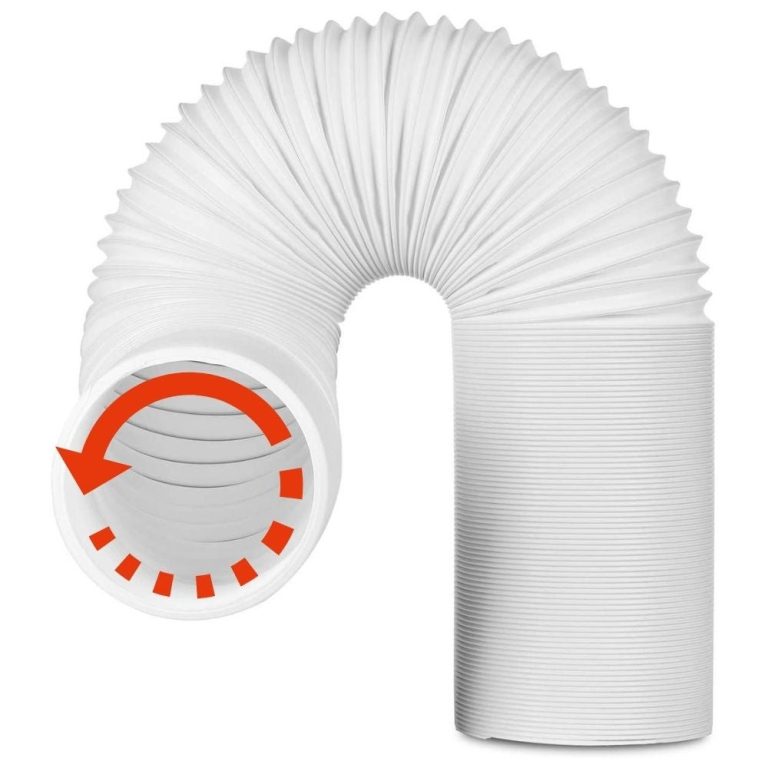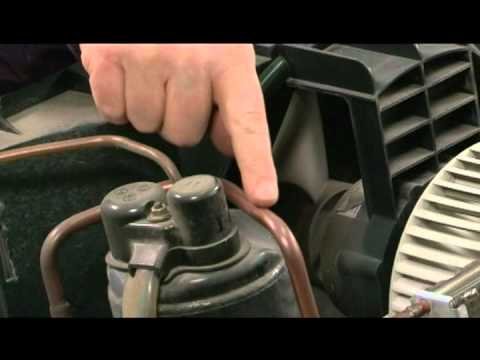How Long Do Air Conditioners Last? Exploring The Lifespan Of Hvac Systems
On average, air conditioners last for about 10-15 years. However, the lifespan can vary depending on factors such as maintenance, usage, and the quality of the unit. Regular maintenance and proper care can help extend the lifespan of an air conditioner.
What if I told you that your air conditioner could be living on borrowed time? As a homeowner, renter, or business owner with an air conditioning unit, you have undoubtedly pondered the lifespan of this essential appliance. How long can you expect your air conditioner to last before repairs or replacement become inevitable? And what are the associated costs? These are the questions that keep you up at night, as you strive to maintain the longevity of your investment and avoid unexpected expenses.
Well, fear not! In this blog article, we will dive deep into the world of air conditioners and uncover the secrets behind their lifespan. Whether you have a basic understanding of air conditioning systems or consider yourself a connoisseur, this comprehensive guide will provide you with the knowledge you need to make informed decisions.
We will explore the average lifespan of air conditioners, factors that can affect their longevity, signs that indicate your unit may be nearing the end of its service life, and tips on how to extend its lifespan. Additionally, we will address the cost considerations when it comes to repairs and replacements, helping you plan for the future. So, if you are ready to demystify the lifespan of your air conditioner and take control of your cooling destiny, keep reading.
By the end of this article, you will be armed with the necessary information to ensure your air conditioner lasts as long as possible, saving you time, money, and the hassle of unexpected breakdowns.
Understanding the Average Lifespan of Air Conditioners
When it comes to the lifespan of air conditioners, there is no one-size-fits-all answer. The average lifespan can vary depending on multiple factors, including the quality of the unit, maintenance practices, usage patterns, and environmental conditions. However, as a general rule of thumb, you can expect an air conditioner to last anywhere between 10 to 15 years.
This estimate applies to both residential and commercial air conditioning systems, encompassing various types such as central air conditioners, ductless mini-split systems, and window units. Of course, it’s important to note that these figures are just averages and individual experiences may vary.
Factors that Influence the Lifespan of Air Conditioners
While the average lifespan provides a broad guideline, it is crucial to understand the factors that can significantly impact the longevity of your air conditioning unit. By addressing these factors, you can proactively extend the lifespan of your system and minimize the chances of premature failure.
Maintenance and Regular Servicing
Regular maintenance and servicing are paramount when it comes to optimizing the lifespan of your air conditioner. Neglecting routine maintenance tasks such as filter cleaning or refrigerant level checks can lead to increased wear and tear, reducing the efficiency of the unit and potentially causing severe damage over time. Therefore, it is essential to establish a maintenance schedule and follow it diligently.
During routine maintenance, a professional HVAC technician will inspect various components, lubricate moving parts, and identify any potential issues. By addressing these issues early on, you can prevent small problems from escalating into major malfunctions, thereby extending the life of your air conditioner.
Quality of Installation
The quality of the installation plays a critical role in determining the lifespan of your air conditioner. Improper installation can lead to various issues, including inadequate airflow, refrigerant leaks, uneven cooling, and increased energy consumption. These problems can put unnecessary stress on the system, leading to premature failure.
To ensure proper installation, it is imperative to hire a reputable HVAC contractor with experience in installing air conditioning systems. A professional installation will not only maximize the performance and efficiency of the unit but also help prolong its lifespan.
Usage Patterns and Environmental Factors
The way you use your air conditioner and the environmental conditions it operates in can have a significant impact on its lifespan. The more frequently you run your air conditioner, the more wear and tear it will experience. Additionally, extreme weather conditions, such as intense heat or humidity, can put added stress on the system.
To minimize the strain on your air conditioner and extend its lifespan, consider implementing energy-saving practices such as using programmable thermostats, maintaining optimal temperature settings, and improving insulation in your home or business. These measures can reduce the workload on your air conditioner, leading to less frequent repairs and a longer overall lifespan.
Manufacturer and Unit Quality
The quality of the air conditioner and its manufacturer can also influence its lifespan. Investing in a high-quality unit from a reputable manufacturer increases the likelihood of it lasting longer. While these units may have a higher upfront cost, they often come with better warranty coverage, superior components, and enhanced durability.
When purchasing an air conditioner, it is essential to conduct thorough research, read customer reviews, and seek recommendations from HVAC professionals. Investing in a reliable and well-regarded brand can pay off in the long run, as it can help you avoid premature replacements and costly repairs.
Signs that Your Air Conditioner may be Nearing the End
As air conditioners age, they often exhibit signs of wear and tear, indicating that their lifespan is nearing its end. By being aware of these signs, you can prepare for necessary repairs or budget for a replacement before experiencing a complete system failure.
Decreased Cooling Performance
One of the telltale signs of an aging air conditioner is a noticeable decrease in cooling performance. If your unit struggles to maintain the desired temperature or takes longer than usual to cool your space, it may be a sign of underlying issues. These issues can range from refrigerant leaks and clogged filters to compressor malfunctions.
While some cooling performance issues can be resolved through repairs or maintenance, if your air conditioner is nearing the end of its lifespan, these problems may persist despite your best efforts. In such cases, a replacement may be the most cost-effective solution.
Frequent and Costly Repairs
If you find yourself calling for repairs more often than not, it may be a clear indication that your air conditioner’s lifespan is coming to an end. Aging units tend to experience an increasing number of breakdowns and require costly repairs to keep them functional.
When the cost of repairs starts to outweigh the potential benefits, it may be time to consider investing in a new air conditioning system. A newer unit will not only provide improved performance and energy efficiency but also come with a warranty, offering peace of mind.
Unusual Noises and Odors
If your air conditioner starts making unusual noises, such as grinding, squealing, or banging sounds, it may be a sign of internal damage or worn-out components. Likewise, persistent odors emitted from the unit can indicate mold or mildew growth in the system, which can be detrimental to both your health and the lifespan of the air conditioner.
While certain noises and odors can be resolved through repairs or maintenance, it is essential to assess the age of your unit and consider whether it makes financial sense to keep investing in an aging system.
Extending the Lifespan of Your Air Conditioner
While the lifespan of an air conditioner is influenced by various factors, there are steps you can take to maximize its longevity. By adopting good practices and implementing preventive measures, you can extend the lifespan of your unit and avoid premature replacements.
Regular Maintenance
Regular maintenance is key to keeping your air conditioner running smoothly and extending its lifespan. Follow the manufacturer’s recommendations for maintenance tasks, such as cleaning or replacing filters, checking refrigerant levels, and inspecting the condenser coils.
In addition to DIY maintenance tasks, it is advisable to schedule professional maintenance at least once a year. A qualified HVAC technician can perform a thorough inspection, identify and address any potential issues, and ensure that your air conditioner is operating at peak efficiency.
Proper Airflow and Ventilation
Restricted airflow can strain your air conditioner, leading to reduced efficiency and increased wear and tear. Ensure that the air vents and ducts are clean and unobstructed to promote optimal airflow. Additionally, regular dusting and vacuuming can prevent the accumulation of dust and debris that can hinder airflow.
Moreover, maintaining a well-ventilated space can help your air conditioner operate more efficiently. Ensure that furniture or other objects are not blocking the airflow around the unit, and consider using fans or strategically placed vents to optimize air circulation.
Controlled Usage and Energy Efficiency
Practicing energy-saving habits not only reduces your carbon footprint but also helps extend the lifespan of your air conditioner. Instead of setting the thermostat to the lowest temperature possible, aim for a comfortable yet energy-efficient setting. Using programmable thermostats can further optimize energy usage by adjusting temperatures based on your schedule.
Additionally, consider implementing passive cooling techniques, such as shading windows or using blinds and curtains to reduce heat gain. By minimizing the workload on your air conditioner, you can reduce the strain on the system and prolong its lifespan.
Professional Installation
When installing a new air conditioner or replacing an existing one, it is crucial to rely on professional installation services. HVAC technicians have the knowledge and expertise to ensure that the unit is correctly sized, properly connected, and efficiently installed.
Professional installation not only guarantees optimal performance but also helps prevent issues that can arise from improper installation, ultimately extending the lifespan of your air conditioner.
Cost Considerations: Repairs vs. Replacements
As your air conditioner ages, the cost of repairs may start to add up, prompting the question of whether it is more cost-effective to repair or replace the unit. While individual circumstances may vary, there are a few key considerations to keep in mind when making this decision.
Frequency and Cost of Repairs
If your air conditioner requires frequent repairs, it may be a sign that its lifespan is coming to an end. The cost of these repairs can quickly add up, potentially exceeding the cost of a new unit.
As a general guideline, if the cost of repairs exceeds 50% of the cost of a new unit, it is usually more cost-effective to replace the air conditioner. Additionally, older units may lack energy efficiency features, leading to higher energy bills. By upgrading to a newer, more energy-efficient unit, you can save on operating costs in the long run.
Warranty Coverage
If your air conditioner is still under warranty, it may be more economical to have it repaired rather than replaced. However, you should carefully evaluate the remaining lifespan of the unit and the cost of the repairs compared to the potential benefits of a new warranty-covered unit.
Keep in mind that warranties typically cover specific components and have limited durations. If your unit is nearing the end of its warranty period or the repairs required are not covered, replacing the unit may be the more sensible option.
The Future of Air Conditioning
As technology continues to advance, so does the world of air conditioning. In recent years, there have been significant developments in energy-efficient systems, smart home integration, and eco-friendly refrigerants.
Manufacturers are continuously striving to create air conditioning systems that consume less energy, reduce environmental impact, and improve overall performance. From variable-speed compressors to advanced sensors and controls, these advancements aim to provide superior comfort and efficiency while extending the lifespan of air conditioning units.
By staying informed about the latest innovations and opting for energy-efficient models, you can not only enjoy enhanced comfort and lower energy bills but also contribute to a more sustainable future.
The Final Verdict: Taking Control of Your Air Conditioner’s Lifespan
Your air conditioner doesn’t have to be a ticking time bomb. With proper maintenance, regular servicing, and mindful usage, you can extend its lifespan and delay the need for costly repairs or replacements.
Remember to schedule routine maintenance with qualified HVAC professionals, address issues promptly, and practice energy-saving habits. By investing in a high-quality unit and ensuring professional installation, you can set the stage for a longer and more reliable service life.
Ultimately, the lifespan of your air conditioner is within your control. Take the necessary steps to protect your investment, and enjoy the comfort and peace of mind that comes with a well-maintained and long-lasting cooling system.
Homemade air conditioner DIY – Awesome Air Cooler! – EASY Instructions – can be solar powered!
How long do air conditioners last?
What factors can affect the lifespan of an air conditioner?
Is it worth repairing an old air conditioner?
Can I extend the lifespan of my air conditioner?
What are the signs that my air conditioner needs to be replaced?
Final Words: Factors Affecting the Lifespan of an Air Conditioner and Tips for Optimizing its Longevity
In conclusion, the average lifespan of an air conditioner is around 10 to 15 years, but this can vary depending on several factors. Factors that influence the lifespan of an air conditioner include maintenance and regular servicing, the quality of the installation, usage patterns and environmental factors, and the manufacturer and unit quality.
Regular maintenance and servicing are crucial for optimizing the lifespan of an air conditioner. Neglecting routine maintenance tasks can lead to increased wear and tear, reduced efficiency, and potential damage to the unit.
Proper installation by a professional HVAC contractor is also important for ensuring optimal performance and longevity. Usage patterns and environmental factors, such as frequent use and extreme weather conditions, can put added strain on the system. Implementing energy-saving practices and improving insulation can help reduce the workload on the air conditioner and extend its lifespan.
Investing in a high-quality unit from a reputable manufacturer is another way to increase the chances of a longer lifespan. Thorough research, customer reviews, and recommendations from HVAC professionals can help guide the purchasing decision. Signs that an air conditioner may be nearing the end of its lifespan include decreased cooling performance, frequent and costly repairs, and unusual noises or odors.






